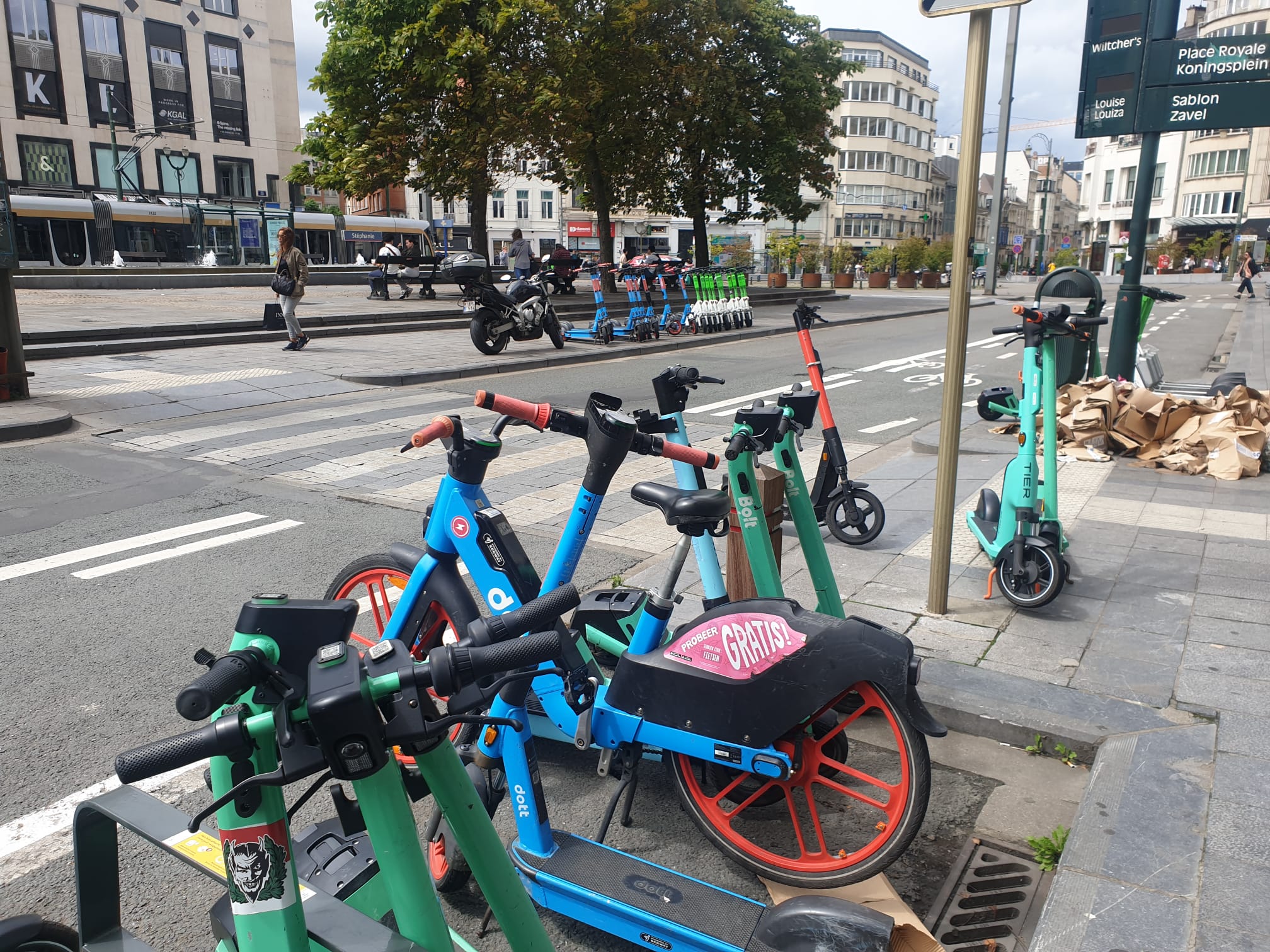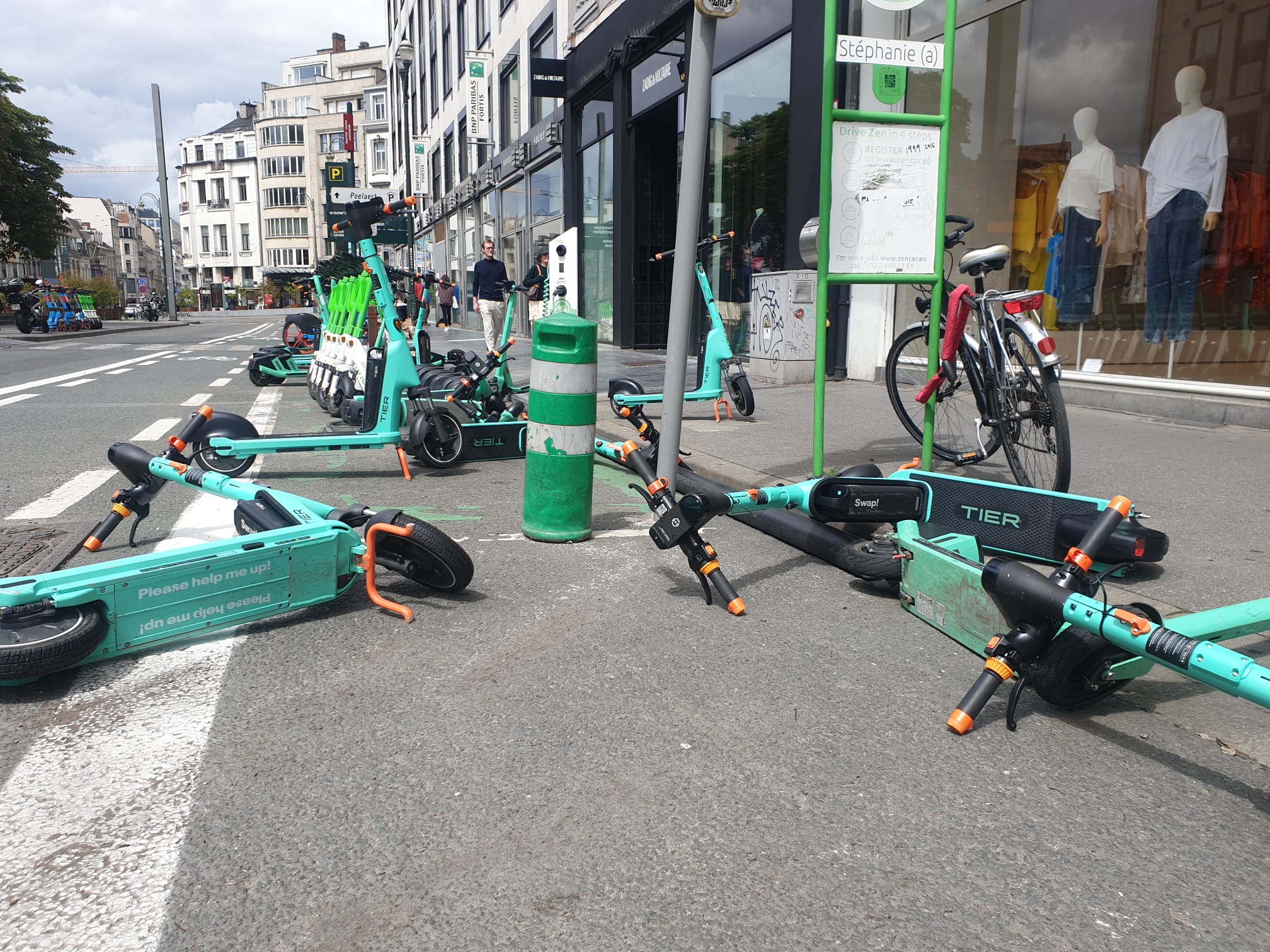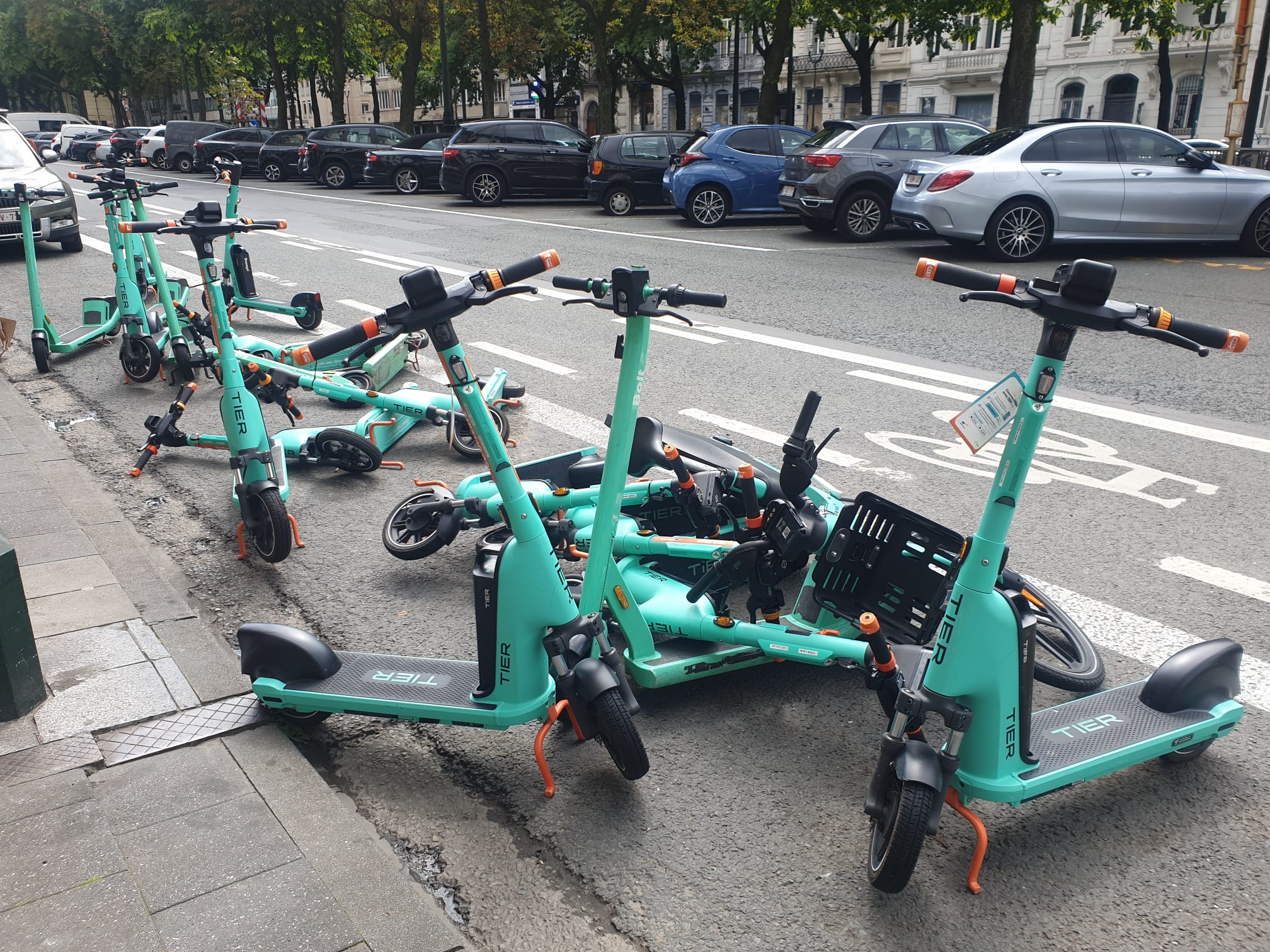To tackle the chaos caused by abandoned shared vehicles, several Brussels communes have imposed mandatory drop-off zones. However, many are too small for the city's large number of vehicles.
The lack of drop-off zones for shared mobility vehicles saw e-bikes and e-scooters scattered across pavements and squares, obstructing passage, posing a danger for people with visual impairments, and cutting off those with reduced mobility.
Awaiting a regional solution, many communes gradually took their own initiative to create designated parking zones for these vehicles and put in place fining mechanisms.
From 1 January next year, drop-off zones will become compulsory throughout the region. These parking spots will be marked out for parking scooters after a user's journey, and the ride can only be 'terminated' if the vehicle is parked in the correct place, as part of the new operator management system.
However, many Brussels municipalities (Berchem-Sainte-Agathe, City of Brussels, Etterbeek, Jette, Koekelberg, Schaerbeek, Saint-Gilles and Woluwe-Saint-Pierre) were once again one step ahead of the region, and have already made it mandatory to leave shared vehicles in these parking zones from the start of the summer. Ixelles followed suit on 7 July.
Dynamic monitoring
Introducing designated parking zones in some parts of the region has alleviated the strain on public space. However, in others, the parking bays are so overloaded that vehicles are being parked next to the zones, ending up on the pavements and streets.
On Place Stéphanie near the Louise metro stop, vehicles are standing and placed neatly next to others. Other parking zones, however, are often full.

While some e-scooters are parked neatly, others are being left on streets and pavements. Credit: Lauren Walker / The Brussels Times
These issues were recognised by Marie Thibaut de Maisières, spokesperson for Mobility Minister Elke Van den Brandt. She did, however, stress that the measures in the municipality had only been in place for a few weeks.
"We are currently in a testing phase and are actively monitoring the drop-off zones to find out which types of parking zones work where," she told The Brussels Times.
This monitoring is ongoing in the communes, with the busiest shared vehicle traffic present in Ixelles, City of Brussels (particularly in the Pentagon area) and Saint-Gilles.
"In Ixelles, for example, we were notified about issues with the parking zone next to the library. It stopped people from reaching the book depository point, so we made changes and placed it somewhere else. This highlights the dynamic nature of the monitoring phase."

Credit: Lauren Walker / The Brussels Times
Mayors from various communes have also notified Brussels Mobility about issues which are then dealt with at the regional level.
Thibaut de Maisières stressed that the pressure on current parking zones will also be alleviated from 1 January 2024, when the new operator management system comes into force.
The new system will see the number of e-scooters capped in the region at just 8,000, down from the current 21,000. More drop-off zones will also be added at this time.

